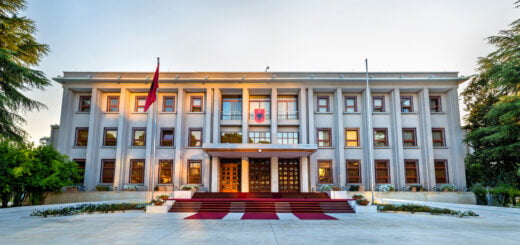Malta’s Controversial Gaming Law Receives Parliamentary Approval
A gaming law that caused considerable controversy. This is how we can summarize the latest legislation authorized by the Maltese parliament, whose Bill 55 confers legal protection to Malta-licensed offshore operators from international liability.
The Enactment of Gaming Law (Amended)
On June 16, Malta’s President, George Vella, put his signature on Act No. XXI of 2023, more commonly known as the Gaming (Amendment) Act. This Gaming Law instructs courts to reject recognition or enforcement of any foreign judgments brought against Malta-licensed operators active within the European market.
Initially brought to the table on April 24, this law aims to protect Maltese operators from potential legal action regarding the provision of gaming services, provided these activities are sanctioned under their licence.
Numerous Malta-based companies, some of which are amongst the largest in the industry, deliver online gaming services across the European single market.
These operators maintain that their gaming operations comply with the Treaty of the Functioning of the European Union, a treaty that upholds the principle of free service movement across Europe.
Contesting Views and Legal Ambiguities
Nonetheless, European regulators and governments refer to the European Commission’s 2017 decision, which halted infringement procedures and complaints in the gambling sector, to claim their right to bar Malta-based enterprises from taking bets within their jurisdictions.
This unclear legal status, to be additionally intensified by the new Gaming Law, has been further exacerbated by several ongoing legal suits.
The Impact of German and Austrian Legal Actions
The enactment of this new legislation occurs amidst multiple ongoing lawsuits in both Germany and Austria. These legal disputes question the legality of the activities of specific operators within these nations.
The Austrian Supreme Court Verdict
The Austrian Supreme Court (OGH) concurred with the rulings of two lower courts and found that Flutter-owned PokerStars had been operating in contravention of the federal gambling monopoly. As a result, the court deemed all of PokerStars’ gambling contracts null and void. It thus validated the plaintiff’s demand for reimbursement. The plaintiff, represented by G&L Rechtsanwälte, had reported losses exceeding €28,000 over a span of five years.
German Court Orders Repayment
In Germany, the Frankfurt Higher Regional Court mandated an unidentified online casino to reimburse over €26,000 in losses to a player who gambled on the site before the regulation of online gambling in Germany. This verdict confirms the decision of a lower court.
Such precedents have paved the way for a multitude of claims against operators with past or current activities in these countries’ markets. One firm alone, AdvoFin, asserts that it has reclaimed €40m in player losses for 1,500 plaintiffs through its legal activities.
Operators’ Reactions to the New Gaming Law
Certain operators, such as Entain, have chosen to pay out in the event of losses. However, others have resisted this decision. Advofin has noted that 888-owned Mr Green and William Hill, along with Flutter-owned PokerStars, have not paid out for any judgments against them for a significant period.
This resistance has led to an influx of lawyers initiating legal proceedings in Malta, where many of these businesses are headquartered.
The Case of 888’s Non-Payment
In May, iGB communicated with an individual who had obtained a final non-appealable judgment against 888-owned Virtual Digital Services Limited. This subsidiary provides gaming in the European market where the business does not hold a local license. As 888 refused to pay out, the person hired a local Maltese firm to sue the operator.
In defense, 888 insists that its Maltese license permits it to provide services to European consumers. The operator stated, “This position is based on the fundamental EU principle of freedom to provide services.” It further added, “While the Austrian courts have challenged this, the group continues to contest the compatibility of the Austrian licensing regime with EU law.”
Conclusion: Unsettled Waters in European Gaming
This heated debate and the recently passed Maltese law underscore the ongoing conflicts within the European gaming sector. With the implementation of the Gaming (Amendment) Act, Malta is effectively trying to secure its position as a hub for online gaming operations. However, as numerous operators are challenging the authority of individual EU countries to regulate their activity, the situation remains volatile and unresolved.
As things stand, the recent actions taken by Malta will likely further complicate the already contentious and ambiguous legal landscape of online gambling within Europe. It remains to be seen how this will impact the relationship between European nations and Malta-based gaming companies, and indeed, how the future of online gaming will shape up in the European region.






